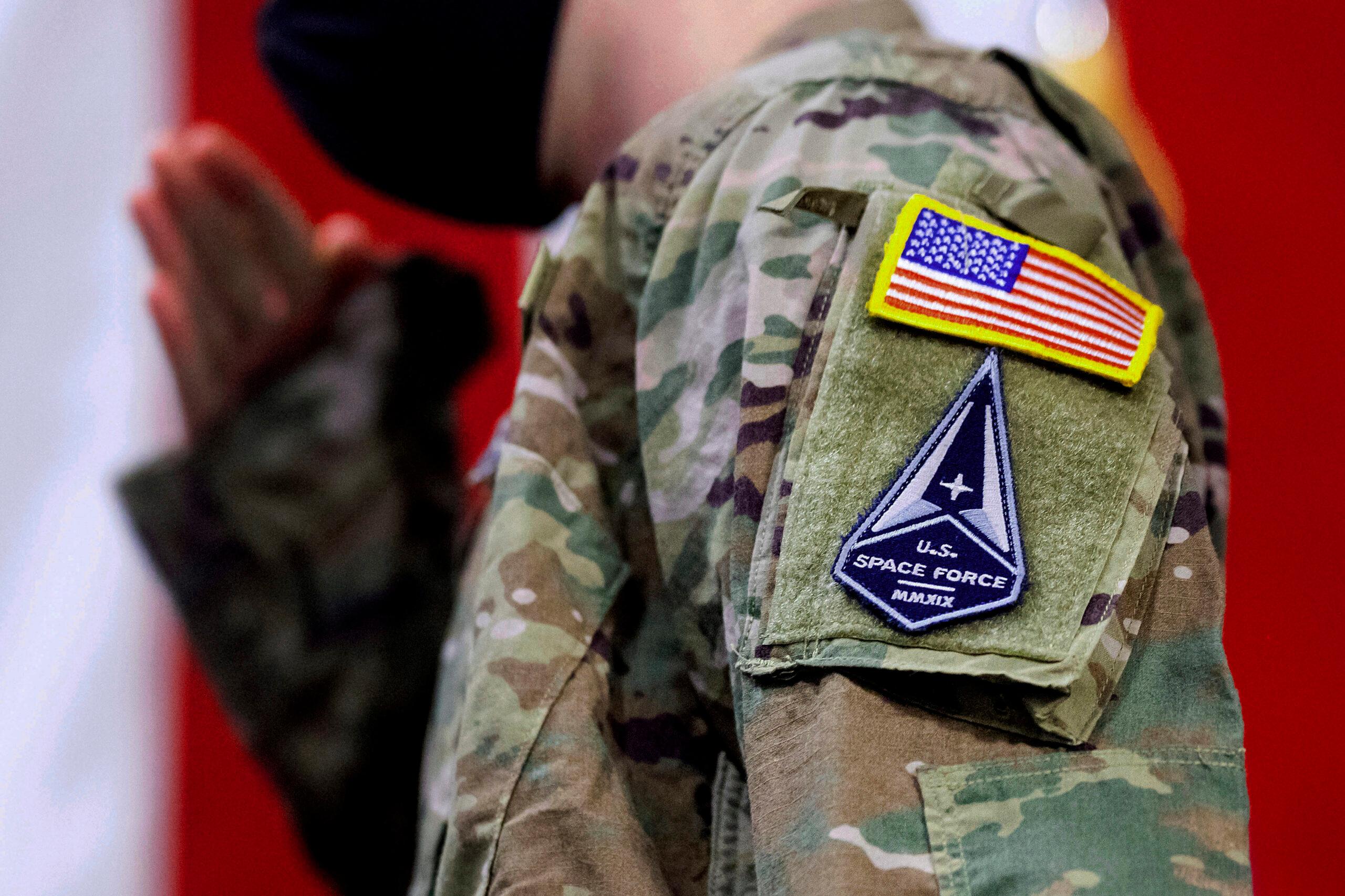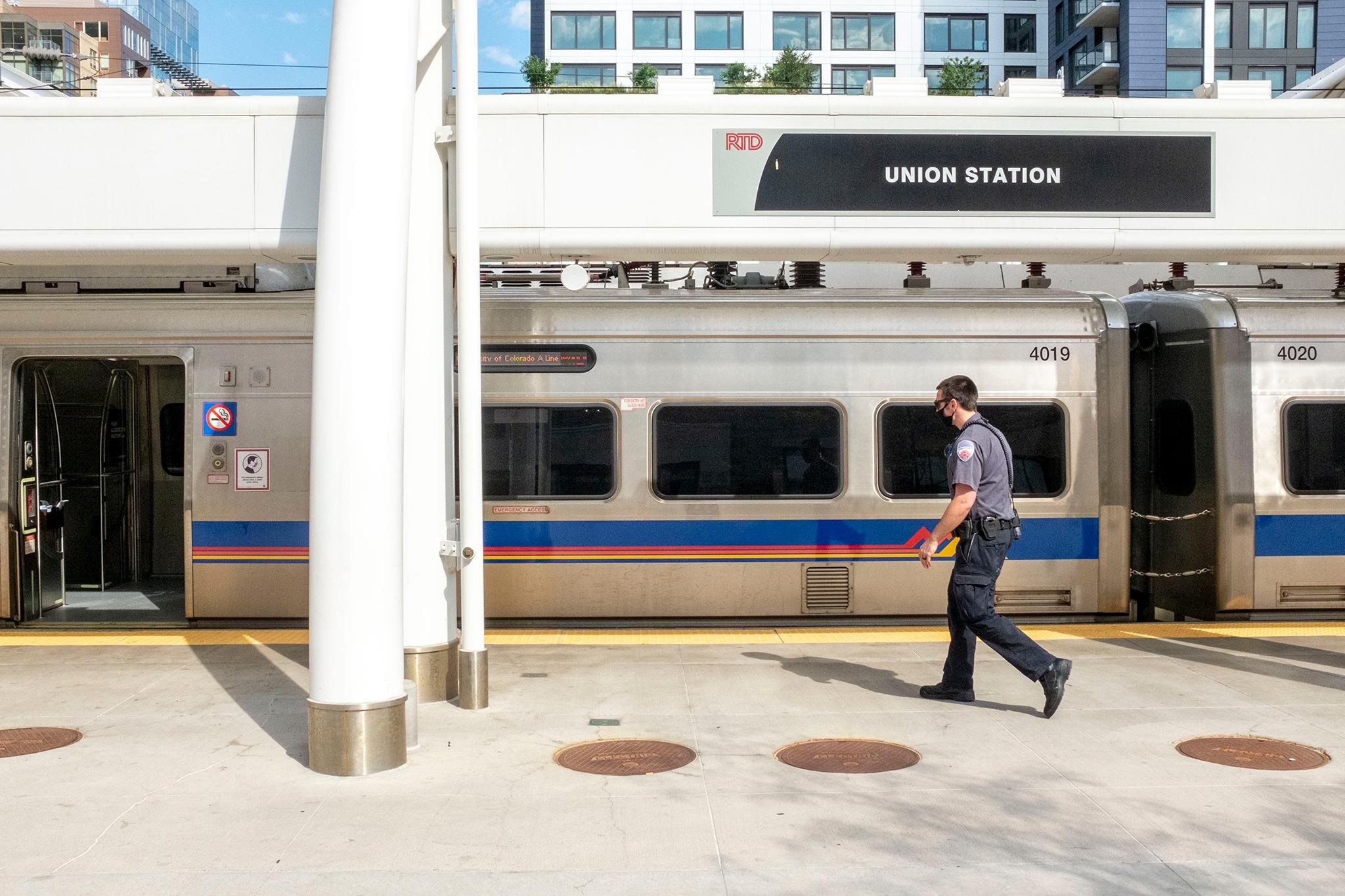
The Regional Transportation District Board will vote Tuesday on whether to cut its security budget by tens of millions of dollars in favor of more mental health, medical and social outreach workers at its stations and on its buses and trains.
The resolution was written by board member Shontel Lewis and has support from two other directors. It would need a majority of the board’s 15 members to pass.
It comes as RTD faces a lawsuit after the brutal April 2018 beating of Denver artist Raverro Stinnett by an Allied Universal security officer while three others stood guard outside a bathroom in an underground bus facility near Union Station.
Lewis said her goal is to shift from what she calls a punitive approach to security to a constructive one.
“It's really about addressing our system more holistically,” she said. “And ensuring that our approach to our patrons is one of compassion and it is one of understanding.”
At the moment, RTD’s security system consists of its own relatively tiny police force who work alongside hundreds of contracted security officers and police officers from cities like Denver, Aurora and Arvada. Lewis’ resolution would terminate RTD’s contracts with multi-national security giant Allied Universal and those police departments by the end of the year.
Stinnett filed suit against RTD and Allied in April 2020. Allied did not respond to a request for comment. In a court filing, RTD’s lawyers condemned the officers and said their actions were “contrary to RTD’s mission and values.”
They also point out the officers were employed by Allied, and thus, the agency argues, it cannot be held accountable. But Allied itself also argues that it can’t be held liable, because the officer’s actions “were not within the scope of their employment with Allied.”
An RTD spokeswoman declined an interview request about Lewis' resolution and its security system, saying she needed to wait for the board’s action before commenting.
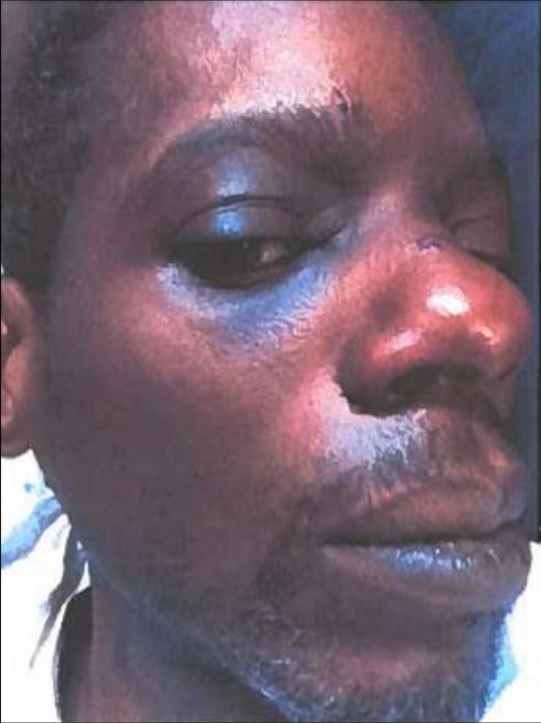
The agency has said it strengthened its oversight of Allied's officers since the Stinnett beating. A January 2018 contract provided by Stinnett's lawyer at Rathod | Mohamedbhai shows RTD required the company to inform it of all use-of-force incidents and complaints on officers.
But a more recent contract shows RTD now requires Allied to provide a monthly report with the names of officers who need "further evaluation as a result of a pattern of behavior or repeated conduct inconsistent with RTD’s and the Contractor’s policies and procedures" and detail how it is addressing the misconduct. RTD redacted another section in that document specific to oversight.
Activists have called on RTD to pay a settlement to Stinnett and sever ties with Allied. Documents provided by Stinnett's lawyer show 1,167 use of force or detainment incidents by Allied officers across RTD’s system between 2013 and April 2018. Activists say Allied has a record of brutality across the country, from Boston to Sacramento.
“That is a black eye on Denver to do business with an egregious gangster company such as Allied Universal,” Jeff Campbell of Denver told the RTD board at a meeting in July. The public comment period lasted more than an hour, with many speakers saying they supported Lewis’ resolution.
Lewis said public feedback about the Stinnett incident was one motivating factor for her resolution, as were ongoing nationwide protests calling for police reform. As a queer black woman who rides RTD often, Lewis said she has been treated poorly by security in the past, and hears from constituents and riders who have been too.
“There are folks who don't equate folks carrying guns and tasers as safety. And in fact, that is the opposite. It makes them feel unsafe,” Lewis said.
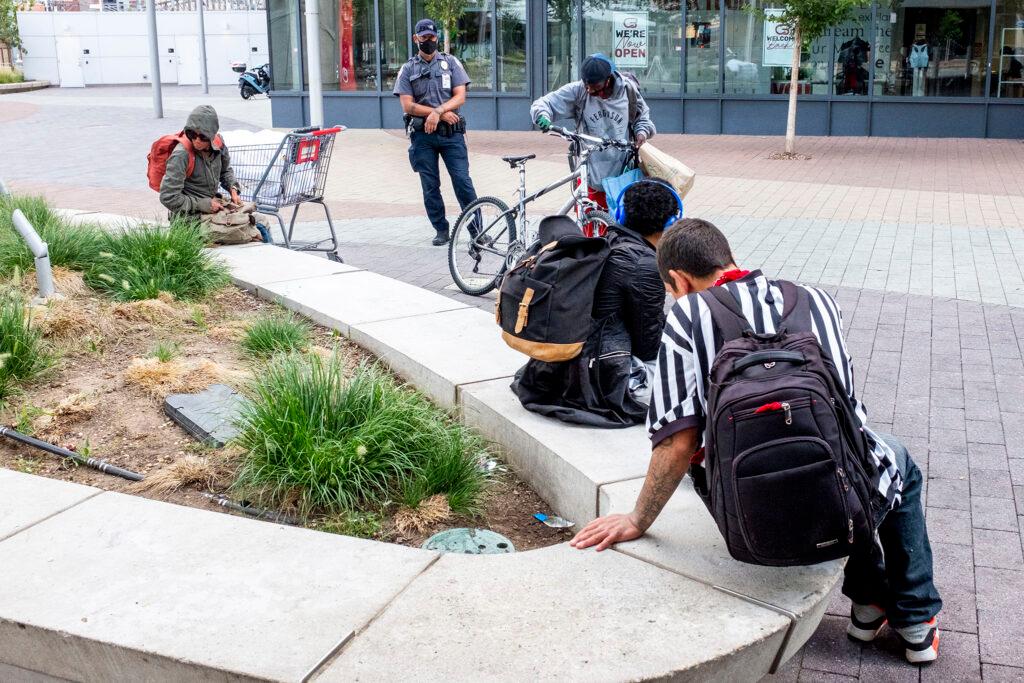
Amanda McDougald worked with Denver’s homeless population for years before moving to Atlanta late last year. She said she and others were often profiled by security, especially at Union Station.
"If you look homeless, or you have a backpack, or you look raggedy, then you go from being a customer to being a loiterer,” she said. “And they hassle you and harass you. And it's absurd and ridiculous and uncalled for. That doesn't make anyone feel secure. That makes people feel insecure."
But the main drivers’ union, the ATU-1001, opposes the resolution, due to drivers’ safety concerns. Bus operator Sherrie Titus told the RTD board in July she needs protection that only armed security can provide.
"I don't think anybody on that board or anybody who called in have been down to Union Station at 4 o'clock in the morning and see what goes on down there,” she said. “We can't even go to the bathroom without somebody trying to rob you.”
Raphael Ward, who drove buses in Denver and Boulder for about two years before becoming a commuter rail operator, said he needed security at times too. But he also said he sees the appeal of hiring people whose job it is to help, not enforce the law.
“When it's a place like Denver Union Station, where it's become a de facto homeless shelter, I think that would be a much better place to use social workers rather than a security guard whose only directive is to get homeless people out,” he said.
RTD this summer adjusted its code of conduct that governs behavior on its property, but a committee tasked with revising it said it still had concerns about “disproportional enforcement, particularly against persons experiencing homelessness.”
Separate from Lewis’ resolution, RTD staff are considering a more modest overhaul that could result in a few more mental health workers across its system. It might also shrink the contract with Allied and beef up RTD’s own police force, which could give the agency more oversight of officers’ behavior.
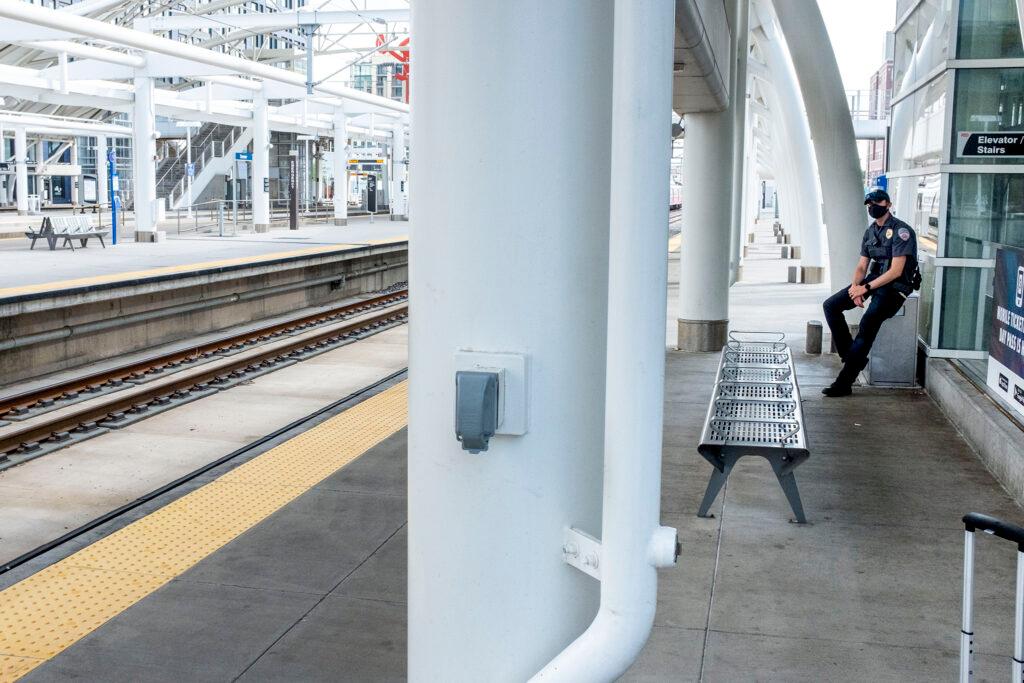
“We're taking a look at this with an emphasis on how we can better contribute to our mission of moving people in the safest and most secure manner possible,” Mike Meader, RTD’s chief safety and security officer, told the board in June.
Transit agencies in cities like Los Angeles, San Francisco, and Washington, D.C. are also discussing changes to security policies and operations. But none appear to go as far as Lewis’ in defunding existing security operations.
“I'm responding to the call of our communities from decades of violent interactions with security personnel, with police officers,” she said. “And while it might feel uncomfortable for folks, I think it needs to. Because for lots of communities — Black communities, Indigenous communities, brown communities, communities of colors — it has been very uncomfortable for them. And so I don't think that it’s too far-reaching. I think it’s just an opportunity for folks to be able to imagine something different.”
Have you had a notable interaction with RTD's system? Reporter Nathaniel Minor wants to hear from you.

